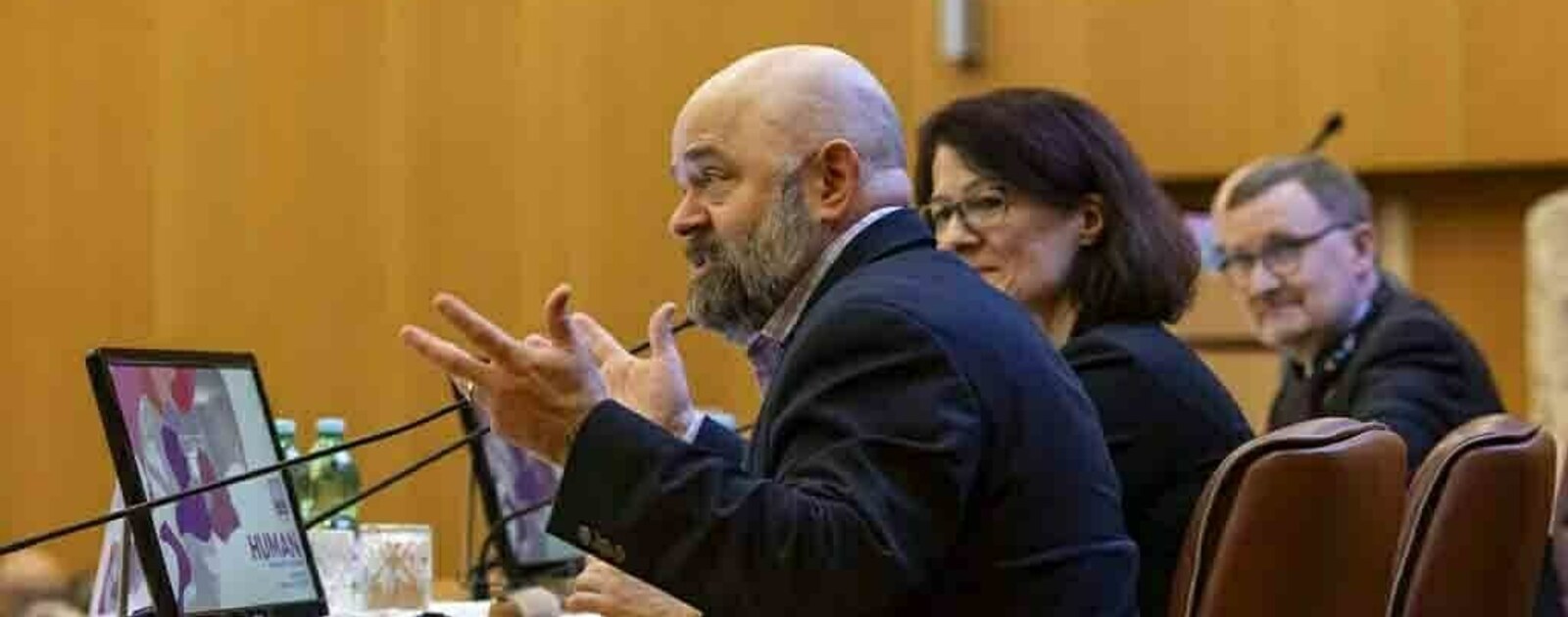Charles E. Rice Professor of Law, visited Vatican City recently to attend the annual plenary assembly of the Pontifical Academy for Life. This Academy, comprising experts selected by the Pope, is dedicated to advancing and safeguarding the ethical principles of the Church concerning life by delving into crucial issues at the intersection of biomedical sciences and ethics. The central theme of this year’s assembly was “Human: Meanings and Challenges,” underscoring the significance of human interconnectedness in the quest for purpose.
During the assembly, Professor Carter Snead delivered a presentation titled “Brain Implants, Neuroethics, and the Anthropology of Embodiment,” in response to Dr. Olaf Blanke’s discourse on neurological therapies for diseases. Drawing from his book, “What It Means to be Human” (Harvard U. Press 2020), Snead advocated for an “anthropology of embodiment” as the cornerstone of bioethics, contrasting it with the prevalent concept of “expressive individualism” that tends to separate mind and body in defining one’s identity. He stressed the importance of recognizing human vulnerability and interdependence as fundamental aspects of embodied existence, promoting a bioethical framework rooted in care, love, and friendship. In the realm of neuroethics, Snead recommended prioritizing access to care, using natural human functioning as a health benchmark, and delineating between therapy and enhancement based on this standard. Regarding memory modification, he contended that while memory plays a crucial role in shaping human identity, the essence of a person transcends even in the absence of specific memories. He asserted that all individuals, including those with severe cognitive impairments, can experience fulfillment through the exchange of unconditional love. By acknowledging and honoring our embodied nature—a concept articulated as a “psychophysical unity” by philosopher Hans Jonas—ethical principles and policies aligned with human values can be formulated for domains such as medicine, bioethics, and related fields.
Additionally, Professor Carter Snead, the Charles E. Rice Professor of Law at ND Law, presented Pope Francis with a Spanish translation of his book “What It Means to be Human: The Case for the Body in Public Bioethics.” Appointed by Pope Francis to the Pontifical Academy for Life in 2016, Snead has been an active member since. Recognized as a prominent authority in public bioethics, his work encompasses the ethical governance of science, medicine, and biotechnology in pursuit of moral imperatives. His scholarly pursuits delve into various ethical dilemmas, including neuroethics, enhancement, human embryo research, assisted reproduction, abortion, and end-of-life decision-making. Concluding a distinguished 12-year term as the director of the University of Notre Dame’s de Nicola Center for Ethics & Culture this year, Snead’s contributions continue to shape the discourse on bioethical considerations at a global level.
